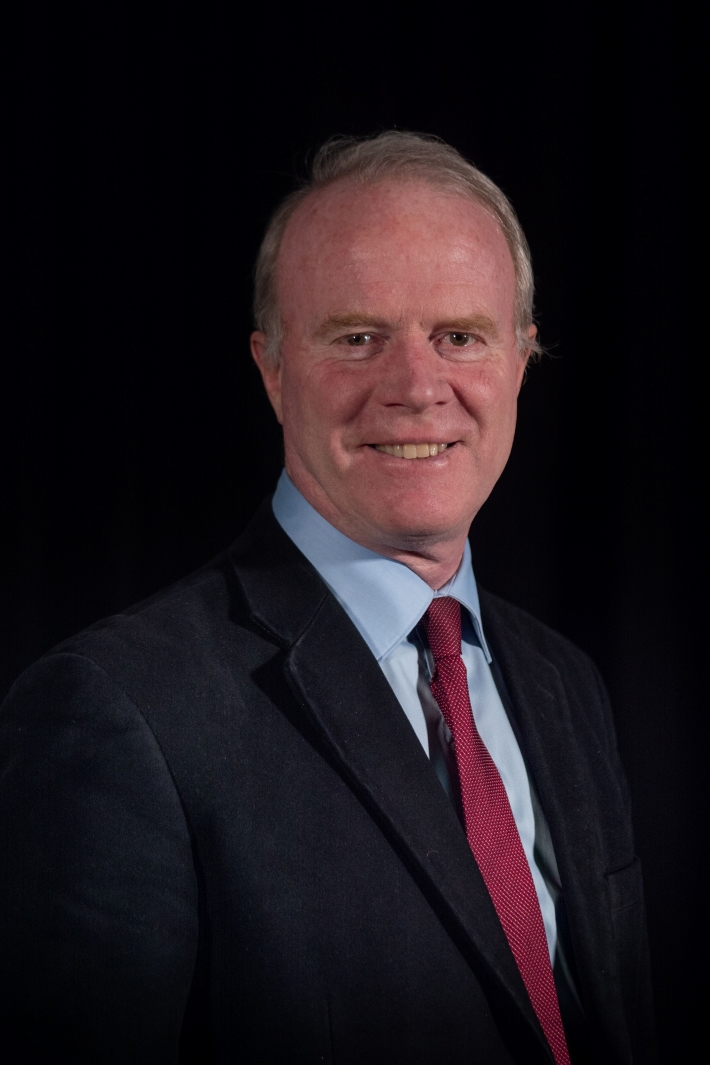The vital role of UNE's Faculty of Medicine and Health in the communities it serves will be underscored in 2020 with the launch of two exciting new initiatives.
By focusing on the contemporary needs of students, faculty dean Professor Rod McClure says he aims to deliver powerful and enduring community benefits - namely address significant staff shortages and inequalities in healthcare delivery in rural areas.
"Supporting our students for success and enabling them to support the communities they're in, also provides a vehicle for those communities to succeed," Rod says. "Our students come from different contexts; they have different needs and aspirations, and we have to ensure our courses are adaptable and can meet the expectations of the workforces they will become part of."
Through the establishment of a ground-breaking Virtual Health Network, UNE is about to roll out a unique educational program to equip students with real-world skills. It capitalises on UNE's strong reputation for delivering sophisticated online learning.
"Rather than expect final-year students to come to us, we will create workplaces that are educational hubs, so our students can learn in a real setting," Rod says. "When our students graduate, they will be expected to practice in those contexts, so it's best that they learn in them. This might, for instance, involve rotating through work with a physiotherapist, dentist, Aboriginal medical service provider, local GP and hospital staff."
Students originating from rural areas, but who move away from home, are up to three times more likely to return during their working life. Rod says the project endeavours to lift those rates for medical students and provide them with valuable hands-on experience of the challenges and opportunities at the front line of rural health care delivery.
"If they learn in this context, we think students will be more likely to become rural GPs or specialists and to become that broker between a person's health and the system that supports their health," he says.
Initially, the program will be piloted in one town, thanks to a generous bequest by the Elizabeth Cahill Fyffe Trust. Senior students will enjoy residencies and placements in regional medical practices or hospitals, coupled with online support and access to specialist advice and tuition.
"But it's part of a bigger, grander program," Rod says. "We eventually want to expand this across other towns in the New England region and we're looking for other financial support to help us do that."
The approach caters beautifully to the specific needs of UNE's medical students, many of whom are geographically isolated and the first in their family to attend university. "We're trying to allow students from wherever they come from to get the education they need, with the most up-to-date facilities and support," Rod says. "We'll be breaking down barriers and seeking students and health providers to take a multi-professional approach."
Such innovation will be complemented by the establishment of a new UNE Institute of Healthcare Research, which will undertake research specially tailored to the needs of dispersed populations in rural and regional Australia.
"Our university seeks to support its communities and the people who live in them," Rod says. "We know many of the populations are under-resourced, so we need to be driving research that ensures everyone has equal opportunities for the best possible health outcomes. Our research institute will focus on these challenges and help to identify the solutions; how we can conduct science that is responsive to the needs of our environment and adapt the workforce models accordingly."
New partnerships with industry and other institutions will be at the heart of both flagship projects. "Our research, particularly, needs to be in collaboration with the people who will use the results, and that includes industry," Rod says. "We will not be coming up with academic vanity questions we want to pursue; we'll be working with the community to address real problems."
Collectively, Rod hopes UNE's efforts will help to inform public policy, improve healthcare delivery and prepare communities for the demands of the future. "Bringing about major benefits to society involves not only influencing the way our healthcare system operates but also influencing individuals, so they can set themselves up to avoid illness. We need to be creating communities that enable people to more easily make healthy choices."
All of this presents exciting opportunities for what Rod believes is an "under-rated anchor institution". "These flagship projects are examples of UNE stepping up to its important role in society," he says. "We are a partner in the lives of the communities we serve and we are now actively and confidently moving into that role. Our biggest assets are the people around us, and if we can support our communities, then we will not only remain a strong university but also provide platforms for those voices to be heard at the national level."


